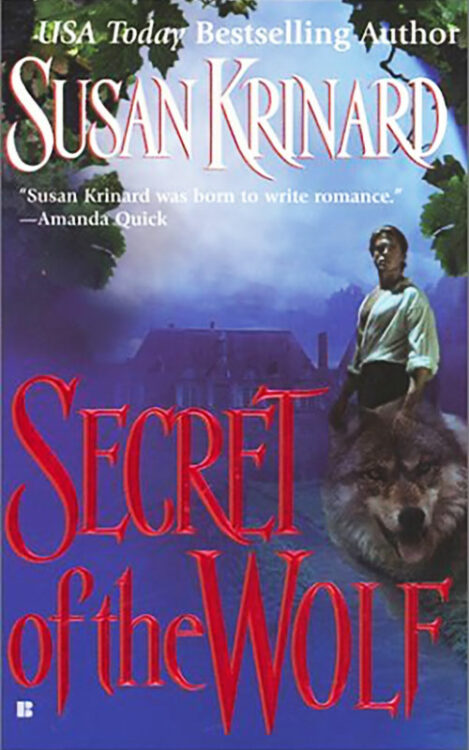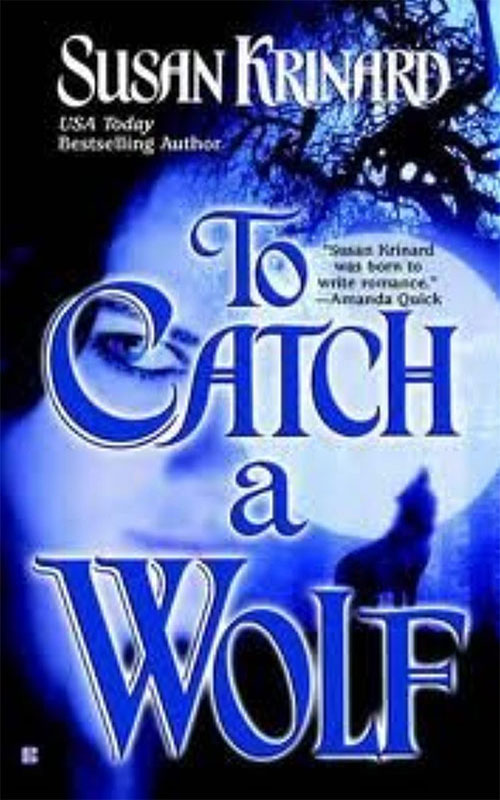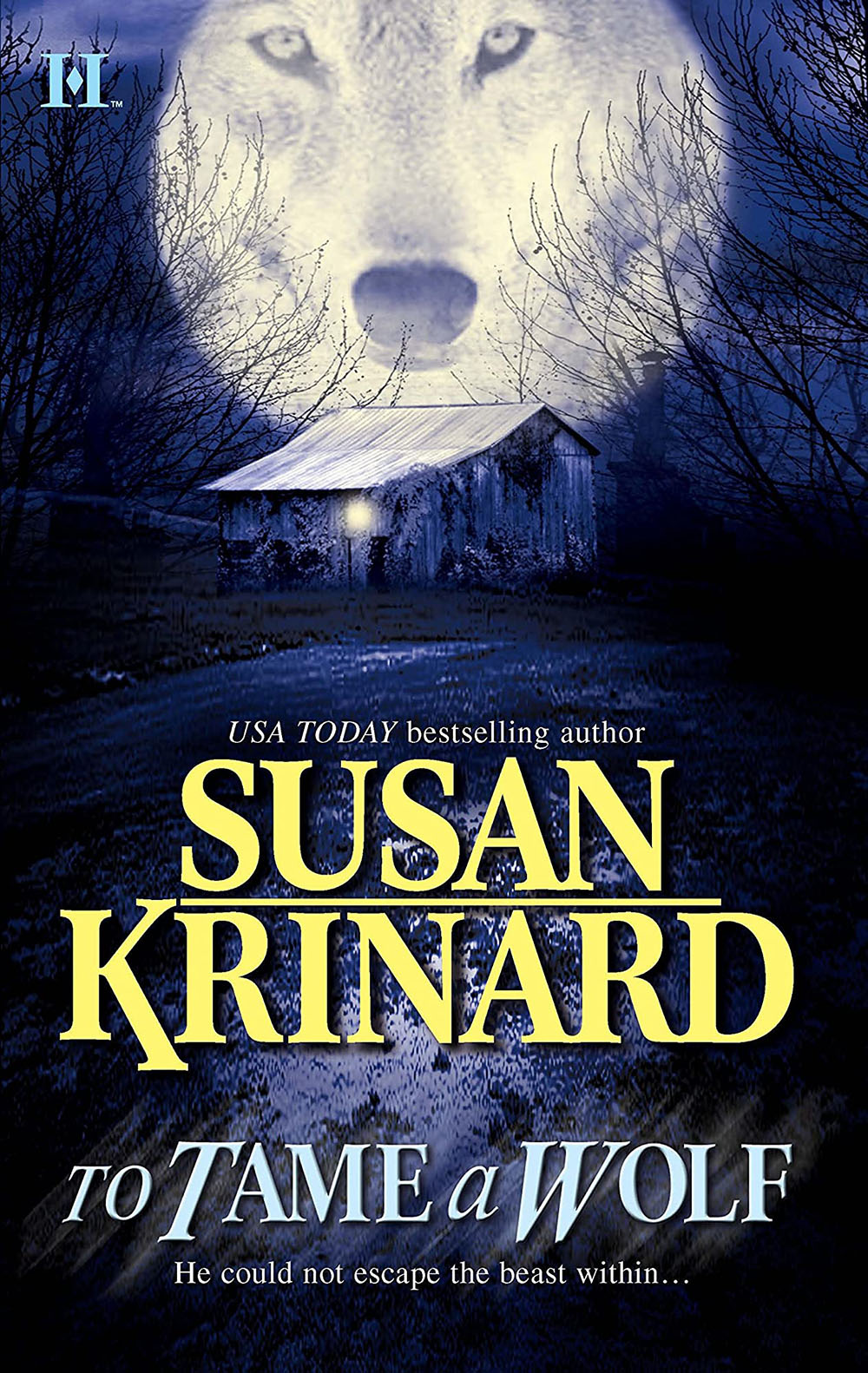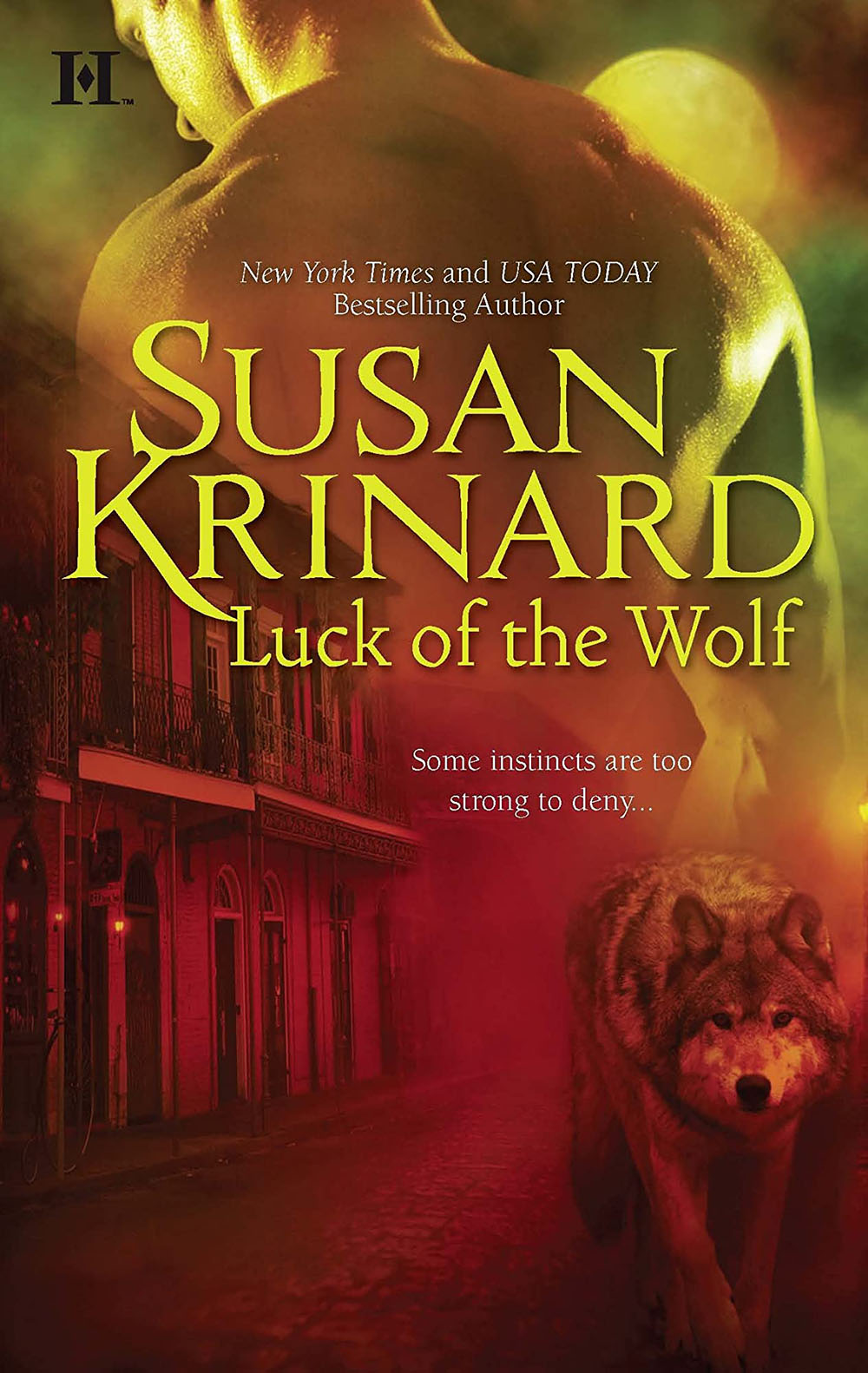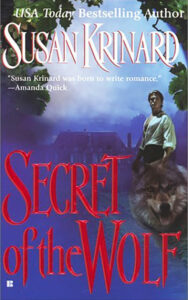Western / Victorian Werewolf Series, Book 3
Secret of the Wolf
Amid the lush vineyards and majestic hills of Napa Valley, hypnotist Johanna Schell has founded Der Hafen—a sanctuary for those who know the pain of being “different.” For desperate, frightened people whose souls are lost to grief. For lonely, tortured men like Quentin Forster….
Frightening spells of amnesia have plagued Quentin for years, and Johanna wants nothing more than to ease his unspeakable pain—and find out if his claim to werewolf blood is just a delusion. But she is horrified to discover that, under hypnosis, this tender, thoughtful man becomes violent, vengeful …evil. And now—caught in the balance between reality and illusion, truth and deception, simple desire and absolute destruction—she must find the courage to trust him. To love him. To save him…
Read an Excerpt
“Stop!”
The vicious drunkard who bent over the cringing boy paused, his fist in midair, as if he had heard the voice of God Himself. Or, at the very least, a policeman with a club.
But if any policemen were to be found in this shabby excuse for a town, he was otherwise engaged. Johanna Schell had no faith in police.
Nor did she have any delusions of divinity. But she trusted in the air of authority she’d cultivated for so many years, and in the strength of her voice.
She crossed the muddy road to the haphazard line of shacks crouched along the docks near the railway station. In the gathering dusk, she could just make out the man’s unshaven face, the scar slashing his chin, the filthy clothing. He reeked of cheap liquor. The boy was pitifully thin, bruised, with the hollow, haunted eyes of one who had endured many such beatings. Johanna had seen that look before.
The man squinted at Johanna and produced an expression somewhere between a leer and a smirk. She saw the way he appraised her, judged her, dismissed her with the dubious aid of his diseased brain.
“You talkin’ to me?” he demanded, swinging toward her.
“I am.” She set down her doctor’s bag, took a firmer grip on her valise and drew up to her full height, almost the equal of his. “You will cease beating that boy, immediately, or I shall summon the authorities.”
“The . . . ath-or . . .” He laughed. His young victim shrank in on himself, as if the laughter were only another sign of worse to come. “Who the hell you thin’ you are, miss high-‘n’-mighty bitch?”
“I am a doctor. I’ve seen what you’re doing to that boy.”
“Boy?” He grabbed a handful of the boy’s frayed collar and jerked him up. “This boy’s m’son. I c’n do whatever I want wi’ him. No ath-or-tee’s gonna stop me. No woman, neither.” He spat. “Doctor, huh. How good’re you at healin’ yerself?”
Johanna ignored his threat. “What has your son done to deserve this?”
The man’s dull eyes grew confused. He couldn’t answer, of course. There was no reason for the punishment, save for his drunkenness and a natural depravity. But his confusion quickly gave way to resentment. He yanked the boy this way and that, until the lad squeezed his eyes shut and went limp.
“You ha’ no right to question me!” he snarled. “He’s useless! Should throw ‘im in the Straits and be done with’m!” He dropped the boy and grinned at Johanna. “You, too. Throw you in the Straits—af’er I have a bit o’ fun.”
“I doubt that very much,” she said. She tested the weight of the valise, grateful for the heavy books that had made carrying it so inconvenient during her visit to San Francisco. She turned to the boy. “Don’t be afraid, mein Junge. I will help you.”
A large, dirty fist thrust itself into the air before Johanna’s face. “You better help yerself.”
“I generally do,” she said. “I’ve dealt with worse than you.”
He stared at her, as if she’d gone quite mad. Most of the denizens of the surrounding neighborhood must run in terror of this bully; he wouldn’t be used to defiance. He had surely never faced those cursed by true madness. She had. And though her heart was beating hard and her hands were sweaty inside her gloves, neither madman nor bully would see anything but calm competence in the visage of Dr. Johanna Schell.
Calm competence was usually enough. It reduced hostility in the vast majority of the patients she’d dealt with in her father’s private asylum. Even the most unruly of the residents had learned she was no frail girl to be intimidated.
This man was not one of the majority. He stepped close enough that his breath washed over her face in a nauseating cloud. “Looks like I’m gonna have to teach you a lesson . . . doctor,” he sneered.
The weight of the books in the valise was much less comforting than it had been a few moments ago. Johanna calculated the best angle of attack. Striking at his face was out of the question. His genitals, however . . .
“Run, boy,” she urged the cowering child. “Run for help.”
“Run, an’ I’ll kill you,” the man said. “You hear me, boy? Ye’re gonna stay and watch.” His attention turned to his son, just long enough. Johanna swung the valise. It connected. The ruffian grunted in pain and shock. He staggered and flung out his arm, hitting Johanna across the temple. She fell, dazed, as he pulled a knife from the waistband of his trousers and lunged for her.
The knife never reached its goal. Out of the shadows of the nearest alleyway, a dark shape flashed in front of Johanna and seized the bully’s wrist. Johanna pushed up onto her elbows, struggling to make sense of what she witnessed.
She couldn’t. The shape—the man, whose face remained only a blur—moved too quickly. He flexed the drunkard’s arm back at an impossible angle. The knife spun into the dirt.
Now it was the bully who crouched, mewling in fear. The boy had already fled. Johanna’s deliverer bestowed as little mercy as the bully had shown his own son. His fist struck like a piston, driving the drunkard onto his back. A second blow followed, and then another.
“You’ll kill him!” Johanna shouted, finding her voice. “Bitte—”
The avenging angel stopped. Johanna caught a glimpse of gentleman’s clothing that had seen better days, a body lean and tall . . . and eyes, their color indistinguishable behind a glare of absolute hatred.
The bully had met his match. This phantom would kill him, without remorse. He reached down to finish the job.
Johanna scrambled to her feet. “Please,” she repeated. “Don’t kill him, not on my behalf. The boy is safe. Let him go.”
She had no way of knowing why the phantom had attacked, if it were for her sake, or the boy’s, or some unknown motive of his own. But he paused again, and in that moment Johanna heard the choked sobs of the child she’d thought safely gone. He watched from the corner of a shack, his fist in his mouth, his bruised face white as a beacon.
“For the boy’s sake,” Johanna said, holding out her hand in supplication. She backed away until she stood beside the boy, reached out to gather him against her side. “Please. Go.”
The man straightened. Again she glimpsed his eyes, enough of his face under a stubble of beard to recognize what might have been a kind of coarse handsomeness. Then he hunched over, blending into the shadows. His prey gave one last squeak of terror, a mouse left half-alive by the cat. And the avenger leaped back into the alley from which he’d come.
Johanna took the boy by his shoulders and held him steady. “Are you all right?” she asked, sweeping him with her experienced gaze. Nothing broken. The bruises would mend . . . if his spirit did. “What is your name?”
“Peter,” the boy whispered. A tear tracked its way through the dirt on his face, but he straightened under her scrutiny. He looked toward the place where his father lay. “My Pa—”
“Peter, I want you to stay right here,” she said firmly. “I am a doctor. I’ll see to him.”
“Is he dead?”
She swallowed, wondering whether it was sadness or relief she heard in his voice. “I don’t think he is. But I will not let him hurt you again.”
Peter nodded and did as she asked. She returned to the site of the unequal battle and found the bully lying where her rescuer had left him. She knelt to count his pulse and feel for broken bones. The right wrist was fractured, at the very least; he would have swelling in his face and two black eyes in the morning. But he still lived, and she saw no signs of internal bleeding.
She rose and wiped off her skirts, as if she could so easily rid herself of this man’s barbarous taint. Odd; she couldn’t quite bring herself to apply the same judgment to her phantom, in spite of the harsh punishment he’d dealt out. Hadn’t he given the bully a taste of his own medicine?
She shook her head, bemused by her own primitive response. Her phantom</em. He was nothing of the sort—merely another disturbed resident of this fetid dockside warren. He, like the man he’d attacked, undoubtedly had a history of violence dating back to his own childhood. He was likely beyond saving.
But Peter was not. She left his father where he lay, collected the boy, and went in search of a local doctor who could take charge of the case. She had to ask in several disreputable saloons before she got intelligible directions to the home of South Vallejo’s physician. He was none too pleased to be called out at dinner time, but Johanna convinced him that she had the boy’s care to consider. Quite naturally, that was a woman’s job.
She wasn’t above using male prejudices when it suited her purpose.
Peter, it turned out, had no living mother; but an elder, married sister lived in the town of Napa City, a major stop on the Napa Valley Railroad’s route north to Silverado Springs. Johanna had no intention of leaving him in his father’s “care” another night. She doubted the father would pursue the lad once he was out of reach, and any life would be better than this.
By the time she and Peter reached the Frisby House, a ramshackle two-story frame building that passed for South Vallejo’s best hotel, the night was dark and damp with fog. She bought Peter the hotel’s plain dinner, which he ate with great appetite, and secured them a small, musty room with two narrow beds. She treated his bruises, checked under his dirty clothes for cuts or abrasions, and did her best to make him wash up with the use of the cracked bowl and pitcher the hotel’s housekeeper provided. His youthful reluctance to obey was heartening, if bothersome; his spirit hadn’t been broken. There was hope for him yet.
Afterward, he fell into an exhausted sleep. Johanna was left to make the best of her lumpy bed and threadbare blankets, listening to the constant din of frogs in the marshes about the town and remembering, again and again, the burning eyes of the phantom.
Gott im Himmel help any local scoundrel who ran afoul of him without a passerby to interfere. She was not much given to prayer, but she offered up a sincere plea that none of his future victims would be any less deserving than young Peter’s father.
And that she, personally, should never see him again.
#
He knew exactly which room was hers.
As he watched from the ill-lit street across from the Frisby House, he could smell her scent, carried by the cool, wet winds from the strait and the ocean thirty miles to the west. He’d memorized the smell instantly when he went to work on that cowardly piece of filth among the dockside shacks.
He knew the boy was with her—but now that the whelp was safe, he was of no further interest. The woman was. He could not have said why, for she wasn’t the kind of female he sought when sexual hunger came upon him. She wasn’t beautiful, though her figure, full of hip and breast, was enough to rouse him.
Maybe it was because she’d stood there, so calm, when the scum attacked her. Remained calm when he appeared. He wasn’t used to such composure when he was around. He preferred to provoke different emotions.
Maybe he was curious. She was a doctor. A female doctor. Because of her, the bastard would live . . . at least for today. She’d robbed him of his vengeance. She owed him for that.
But it wasn’t his way to ponder what could not be explained. He existed by instinct, and emotion, and whim. Now his whim said that he wanted this woman, in a way no weak human soul could understand.
He could go after her, of course. He moved like the fog itself, all but invisible to human senses. He could steal her from that room with no one the wiser. Satisfy himself with her, and be done with it.
No one would stop him, least of all the Other. The one he wouldn’t name, because to name the Other him gave him power. And he wasn’t ready to surrender himself.
Some day, he would keep what was his, and damn the Other to darkness and silence forever.
He dug his bare toes into the earth of the street, indifferent to the loss of his shoes. He didn’t need them. He shifted from foot to foot, staring at the darkened window.
A bellow of raucous laughter burst from the nearest saloon, distracting him. The smell of liquor and beer drowned out the woman’s scent. His mouth felt dry, ready for another drink. That took far less effort than climbing into the woman’s room. It was the swiftest escape from the memories, the burden the Other had given him.
And in the saloon there were men who would cross him. Ruffians who would see only a lean, oddly dressed tenderfoot with too much money, ripe for the plucking.
He loped to the entrance of the saloon, whose doors spilled light like pale blood into the street, and went in. The room was full of carousers, with a couple of whores for good measure. He sat at the bar, pulled a handful of coins from his pocket and ordered a whiskey straight. Ten drinks later, even the bartender was staring in amazement. Still it wasn’t enough. Not enough to drown the memories.
Someone kicked at his bare foot. He ignored the first blow. The second came harder, accompanied by a loud guffaw.
“Hey, boy. Someone steal yer shoes?”
Still he waited, taking another sip of his whiskey.
“You hear me, you scrawny li’l pissant? I’m talkin’ to you.” A blunt, dirty hand snatched at the coins. “Where’dja get all that chickenfeed, eh? You gotta share it with the rest of us. Right, boys?”
He ordered another drink and downed it in one swallow.
“Wha’ ‘r’ you . . . some kind o’ freak? Or is that water y’er drinkin’?” The glass was plucked from his hand.
He turned slowly to the man leaning on the nicked wooden bar beside him. Another drunk, of the belligerent variety. A brute, no longer young but massive from hard physical labor, the kind who found a little extra incentive for a quarrel in the contents of a bottle. Just like the one who’d been beating on the boy.
Just what he’d been waiting for.
He smiled with deliberate mockery. “What’s it to you, you ugly son of a bitch?”
The drunk let fly after a moment’s disbelieving pause. It was pathetically easy to dodge the blow and slip around behind.
He kicked the drunk’s feet out from under him. The audience laughed and snickered as the brute went sprawling . . . until the man pulled a pistol from his trousers. His shot went wild and crashed into the stained mirror behind the bar.
Several onlookers jumped the shooter, disarmed him, and tossed him into the street. The bartender cursed over his shattered mirror, and the rest returned to their drinking and whoring.
But the “freak” wasn’t satisfied. He stuffed the money back into his pockets and went in pursuit of his prey. He found the drunk on his knees in the street, swearing a blue streak and wiping hands on muddy trousers. Bloodshot eyes lifted to his, narrowed in hate.
“D’you really want to see a freak?” he asked pleasantly. When he had the drunk’s full attention, he stripped and Changed. It hurt, the way it always did, but he didn’t care. He reveled in the pain. He finished, every muscle and bone screaming in protest, and waited for his prey to realize what he saw.
The drunk’s eyes nearly popped from their sockets. He tried to scream. He wet himself and fell into a dead faint.
Laughing with his wolf’s grin, he raked his sharp foreclaws along the slack, pockmarked face. Let the drunk remember this encounter, as the previous bully would. Let him scare his fellows with mad tales of men who turned into beasts. No one would believe. They never believed.
He bent back his head and howled. The sound bounced off alley walls and floated on the fog like a banshee’s wail. All noise from the saloon stopped; he could almost see the faces turned toward the door, the hasty gulping of whiskey, the furtive gestures made to appease God or the devil.
He belonged to neither. Let them listen and be afraid.
He Changed back, dressed quickly, and turned for the hotel . . . and the woman. But a vast weariness overtook him; curse it though he might, he knew what it portended. The more he fought, the greater the chance the Other would seize control.
He must rest. Find some quiet place where he wouldn’t be disturbed, and he might wake still in possession of this body.
With the last of his strength, he began to search for a sleeping place. In the end, he found he could not leave the vicinity of the hotel, where she lay. He discovered an abandoned, fire-damaged cottage two blocks away, tore through the boards nailed across the door, and lay down close to a window, where he could still catch the merest whiff of her scent over the smell of burned wood and mouse droppings.
She’s mine, he told the Other. No matter how often you drive me out, I’ll come back. I will have her in the end.</em
And you will have nothing.

